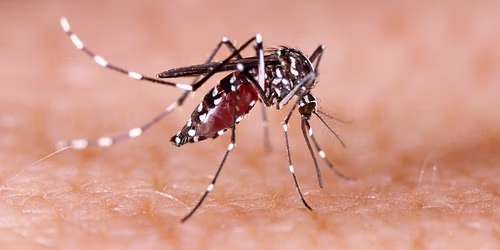Cambodia reported about 7,000 dengue fever cases in the first half of 2025, similar to the number of cases during the same period last year, a health official said on Thursday.
However, the death toll from the disease dropped to 15 during the January-June period this year from 23 in the same period last year, said Huy Rekol, director of the National Centre for Parasitology, Entomology and Malaria Control.
“All the patients who died so far this year were children,” he told Xinhua news agency.
“The deaths occurred because the parents or legal guardians had sent their sick children to the hospital late.”
He said parents or legal guardians should take their sick children to health centres or state hospitals within 48 hours if they suspect their children are infected with the dengue virus.
Rekol also appealed to households to fill in puddles around their houses, saying that they are sources of mosquitoes.
Dengue fever is a viral disease transmitted through the bite of an Aedes mosquito, which is a day-biting mosquito. The disease causes an acute illness that usually follows symptoms such as headache, high fever of up to 40 degrees Celsius, exhaustion, severe muscle and joint pain, swollen glands, vomiting and rash.
In the Southeast Asian country, the peak of the dengue epidemic period is in the rainy season from May to October.
The Ministry of Health on Thursday reminded people to be extra vigilant over dengue fever, saying that the disease has been on the rise since late April and may continue to surge due to increased rainfall.
According to the World Health Organization (WHO), Dengue (break-bone fever) is a viral infection that spreads from mosquitoes to people. It is more common in tropical and subtropical climates.
Most people who get dengue will not have symptoms. But for those who do, the most common symptoms are high fever, headache, body aches, nausea, and rash. Most will get better in 1–2 weeks. Some people develop severe dengue and need care in a hospital.
In severe cases, dengue can be fatal.
You can lower your risk of dengue by avoiding mosquito bites, especially during the day.
Dengue is treated with pain medicine, as there is no specific treatment currently.
(IANS)





